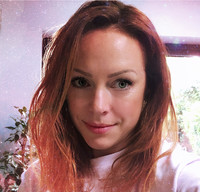MRS Analytics Spotlight: Lisa Cowie
05 March 2024

Interview with Lisa Cowie - This month's MRS Analytics Spotlight
Lisa is a freelance research consultant, after having spent 15+ years working for media owners in advertising research. She spent 8 years at Twitter (now X), leading research partnerships with media agencies. Before that, she was at Viacom Media (now Paramount), leading ad sales research.
She’s on the MRS Advanced Insights & Analytics Council and in this piece talks briefly about her career to-date and some of the most interesting ways she’s seen advanced data analytics enter market research.
What is your current role?
I am currently working as a research consultant for On Device Research (ODR) who do brand lift research for advertisers. This is a company I’m excited to be involved with because they’re pioneering cross-media effectiveness using passive measurement, making it super accessible for all agencies/brands. The multi-channel approach means all brand advertising is accountable and comparable.
How did you start in the market research industry?
Does anyone have a dream to be a market researcher? I didn’t! But at university, I really enjoyed a module on ‘Research Methods’ during my sociology degree and felt that was an industry I could enjoy. I fell into a graduate job at the Office for National Statistics, which taught me all the fundamentals of end-to-end quant research. It’s reassuring when I look back at the unbelievable rigor applied to data collection and data quality at this government agency!
Have you seen a shift in the nature of market research during your career?
I’ve seen a plethora of new techniques, making the work we do even more interesting and enabling us to act faster. I think expectations have risen for what is possible, but that also means research & insight is more firmly integrated into businesses.
Of course, I’ve also witnessed a movement towards data. Sometimes data for data's sake (desire without a well thought-out plan), but mostly a recognition of what is possible with advanced analytics and data science. Knowledge is key, and to my point on expectations rising, the agency/brand clients I have serviced increasingly saw the power of customer data, passive tracking and advanced analytics. In the past, it was a tough gig to present research from new/innovative methods and now it’s much easier. Even something like neuro research was difficult to convey when I first started my career, with little understanding among many audiences, whereas today it’s commonplace and fully understood.
I know I’m biased from having spent years working in social media, but I personally love what has been made possible and achieved with social data - this has added a really compelling component to market research and understanding people, using their own organic posts at scale.
What are some of the most interesting ways you’ve utilised data analytics in your work?
Firstly, ad attention measurement. This is fast becoming the currency for planning and buying in the marketing industry. I’ve partnered with some fantastic companies like Lumen and Amplified Intelligence, where we captured consumer behaviour with ads and fused with more traditional brand uplift approaches. Being able to then calculate the likelihood of ads gaining attention across platforms felt truly ground-breaking - especially when applied at scale.
Secondly, modeling to enhance marketing effectiveness. I’ve seen some really impressive work that uses advanced analytics to create laser-focused recommendations on best practices for ads to resonate.
Lastly (for this article at least), trends. I’ve worked on some incredible cultural trend research that utilised machine learning to capture and curate social data. AI algorithms helped us to predict trends into the next 6 months, as well as surface trends and consumer insights that were genuinely new - the unknown unknowns. What I loved about this work is that it paired with qualitative research and expert interviews, which gave us the stories to bring the data to life.
Why is it important research uses data analytics/ science in your opinion?
Businesses are ever more concerned with cost efficiencies, and I think good use of data is an area that can improve how companies operate. Oftentimes, insight lives in datasets that are underused. Or there are instances where more can be done with research output - I have increasingly become focused on squeezing as much out of studies as possible and advanced analytics helps with that. I also love that data science can capture passive behaviours - this doesn’t mean we lose methods like surveys but rather means we can be even more directed and particular about what questions we ask for meaningful insights.
What are the key benefits and challenges of data science/ advanced analytics being used in market research?
The biggest challenge I see is one that’s always been present for the research industry but is even more pronounced now - making output accessible and compelling to non-researchers. It’s a real skill to maintain depth, detail and sophistication, whilst also providing insight that is inherently interesting and doesn’t alienate people. Simplification is so often needed. I love the detail, but I also love a ‘less is more’ approach.
I think there is a stronger bridge to construct between data scientists and market researchers. Expecting all researchers to become programmers and statisticians isn’t realistic or necessary, but researchers need to know what is possible so they can work with people holding these skill sets.
Related Content
Get the latest MRS news
Our newsletters cover the latest MRS events, policy updates and research news.











0 comments